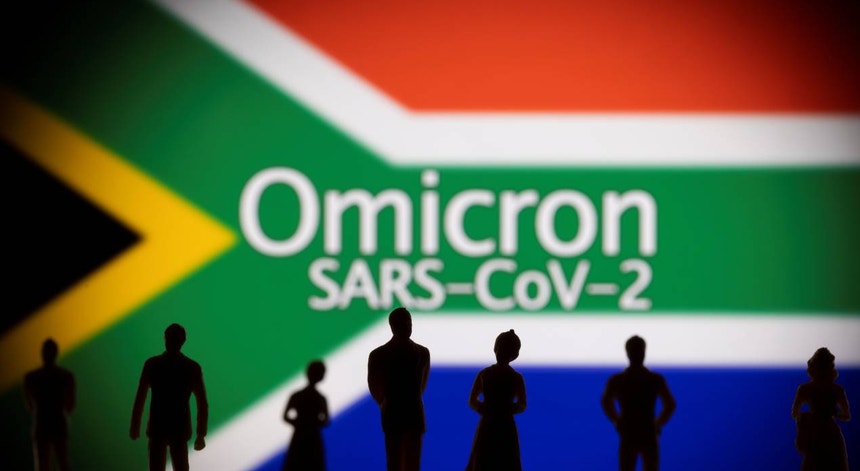On Thursday, South Africa’s Minister of Health announced that a new variant, B.1.1.529, had been discovered. The variant sounded sirens because of the “extremely high” number of mutations it had, which could help the virus escape immunity.
It only took a day after the South African minister announced the discovery of the first case in Europe, and since then, the new type has spread rapidly across the world, prompting many countries to take restrictive measures.
What is known about the new variant?
After its discovery, the World Health Organization (WHO) classified the new variant B.1.1.529 of the coronavirus as “of concern” and named it Omicron.
According to the World Health Organization, The Omicron variant contains “a large number of mutations, some of which are of concern”. Preliminary data indicate an “increased risk of reinfection” with this strain compared to other variants of concern.
total no, Omicron contains 50 mutations, 30 of which are found in the protein. escalate The structure that the virus uses to enter cells and the part of the virus that most vaccines use to prepare the immune system against Covid-19. The 30 omicron mutations are about twice that of the delta variant, which is considered highly transmissible.
The World Health Organization, however, says it still does not know whether Omicron is more transmissible compared to other variants of SARS-CoV-2, or whether it causes more serious disease.
“We still don’t know much about this variant. What we do know is that it has a very large number of mutations. The concern is that when there are a lot of mutations, it may have a lot of mutations,” said Maria van Kerkhove, who is responsible for the Covid-19 study at the World Health Organization. There is an effect on the way the virus behaves.
Portugal with suspected cases under analysis
In Portugal, no case of the Omicron variant has been confirmed, but Suspected cases are being investigated. The Directorate General of Health confirms that there are notifications in the Lisbon region.
From Saturday, all passengers from Mozambique, South Africa, Botswana, Eswatini, Lesotho, Namibia and Zimbabwe are required to comply with a 14-day quarantine after entering Portugal.
The Portuguese government also decided to suspend flights to and from Mozambique from Monday.
Can a new variant harm the effectiveness of vaccines?
Mutations in the protein escalate It can affect the virus’s ability to infect and spread cells, but it also makes it more difficult for immune cells to attack the pathogen.
Thus, given the large number of Omicron variant mutations, the European Center for Disease Control warns that the efficacy of vaccines may be at stake.
Virologist Pedro Simaz believes that even if the new SARS-CoV-2 variant is more contagious, it may not affect immunity. “As a virologist, I find this very unlikely to happen.The important thing is understanding whether people infected with the new type have been vaccinated, Pedro Simas said in an interview with RTP.
In general, experts say they need more time for evaluation, but they argue that there is still no cause for serious concern.
For its part, Moderna has already announced that it will develop a specific vaccine for the new variant, saying the Omicron strain presents a “significant potential risk” to the vaccine.
“Moderna will rapidly develop a candidate vaccine for a specific booster dose of the Omicron variant.The American pharmacist said on Saturday. The pharmaceutical company aims at the beginning of next year to create a new vaccine to counteract the Omicron variant.
Pfizer and BioNTech also issued a statement Saturday, explaining that their labs are already analyzing the variant to determine if their vaccine (one of the most widely used in the United States and Europe) would need some kind of “adjustment.”
Johnson & Johnson, which markets its vaccine in Europe under the Janssen name, said it was already testing the effectiveness of its product “against the new, rapidly spreading variant identified in South Africa”.
North American companies Novavax and Britain’s AstraZeneca also said they are analyzing the effect of their vaccines against the new alternative.
Collimated, The European Medicines Agency (EMA) has deemed it “too early” to predict whether adapting vaccines against COVID-19 will be necessary. “in a different configuration” to counter the new variable, for which the data is still “insufficient”.
with agencies

“Hardcore alcohol maven. Hipster-friendly analyst. Introvert. Devoted social media advocate.”

